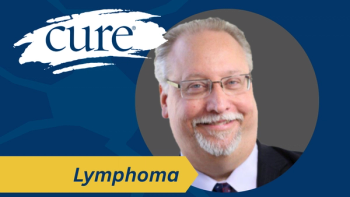
|Articles|October 13, 2015
- Hematology Special Issue
- Volume 1
- Issue 1
Medical Illustration: Treatments for NHL
Author(s)Erin Moore
Two types of effective treatments for non-Hodgkin lymphoma are cell signaling inhibitors and monoclonal antibodies.
Advertisement
Two types of effective treatments for non-Hodgkin lymphoma are cell signaling inhibitors and monoclonal antibodies.
Click to enlarge/download [Illustration by Erin Moore]
- Cell signaling inhibitors block overactive communication pathways, which send messages from the surface of a cancer cell to its nucleus. Blocking this communication stops the cell’s growth and survival. The leading molecules, or message transmitters, in this pathway are phosphatidylinositol-3-kinase (PI3K), Bruton’s tyrosine kinase (BTK) and mammalian target of rapamycin (mTOR). Blocking these kinases with drugs like idelalisib (Zydelig), ibrutinib (Imbruvica), everolimus (Afinitor) or temsirolimus (Torisel) stops the cancer cells from growing.
- Monoclonal antibodies recruit the immune system’s natural killer cells to attack the tumor. They do this by targeting specific receptors on the cell surface to initiate an immune response against the cancer. These agents may also bind to complement proteins to form holes in the cell membrane or block cell signaling, leading to self-destruction. Additionally, monoclonal antibodies can be used to deliver chemotherapy or radiation directly into the cancer cell. Monoclonal antibodies used to treat non-Hodgkin lymphoma include rituximab (Rituxan), obinutuzumab (Gazyva), ofatumumab (Arzerra), epratuzumab, brentuximab vedotin (Adcetris) and ibritumomab tiuxetan (Zevalin).
Articles in this issue
about 10 years ago
When to Stop Beneficial Treatment in Chronic Myeloid Leukemiaover 10 years ago
A Stranger's Small Kindness Makes a Big Differenceover 10 years ago
More Than a Buzzword, Immunotherapy Holds Great Promiseover 10 years ago
Keeping Blood Cancers in Focusover 10 years ago
Beyond Relief: More Than Symptom Palliation in MPNsover 10 years ago
Connecting Healthy Adults to People With Blood Cancersover 10 years ago
CAR Pool: Immunotherapies Improving Outcomes in ALLover 10 years ago
Playing it Safe: Avoiding Infections After Stem Cell Transplantsover 10 years ago
Inching Toward a Cure for Multiple MyelomaAdvertisement
Advertisement
Advertisement
Trending on CURE
1
Why Is Lung Health Key to Survivorship After Cancer Treatment?
2
New Combination Treatment Approach Studied in Pancreatic Cancer
3
U.S. Soccer Legend Kasey Keller Reveals Lymphoma Journey
4
FDA Updates Safety Warnings for Common Chemotherapy Drugs
5




